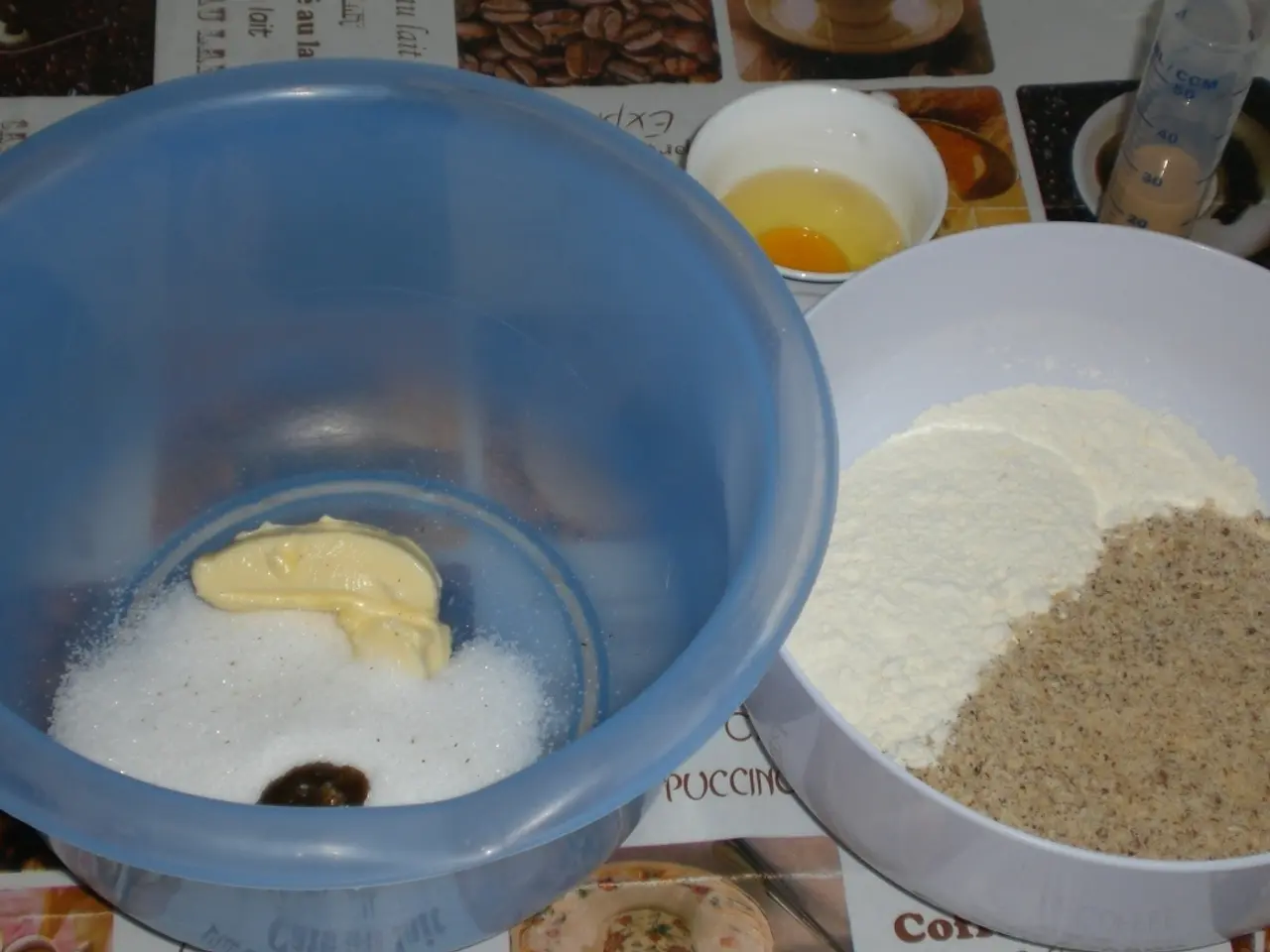Intestinal Disorder - IBS Specifics: Symptoms, Solutions, and Beyond
In a bid to manage the symptoms of Irritable Bowel Syndrome (IBS), a common digestive disorder affecting both adults and children, a multi-faceted approach is adopted. This approach targets symptoms, lifestyle, diet, and psychological factors.
1. **Dietary Modifications**
The Low FODMAP diet, considered the gold standard internationally, restricts fermentable sugars found in foods like onions, garlic, apples, milk, and wheat, known to trigger symptoms such as bloating, abdominal pain, diarrhea, and constipation. This diet has been effective in about 75% of patients, improving symptom relief and quality of life[1][2]. Other diets, such as the Mediterranean diet, have also shown promise in providing symptom relief[1]. Fiber supplements like ispaghula husk are used for constipation-predominant IBS (IBS-C), and avoiding dietary triggers tailored to individual sensitivity is crucial.
2. **Pharmacological Treatments**
Treatments are tailored according to IBS subtype. Antispasmodics like Mebeverine and Dicyclomine help reduce abdominal cramps, Loperamide is used for diarrhea-predominant IBS (IBS-D) to control diarrhea, and laxatives are used for constipation-predominant IBS. Probiotics may help balance gut microbiota, improving symptoms in some cases[2]. Neuromodulators like tricyclic antidepressants (TCAs) and selective serotonin reuptake inhibitors (SSRIs) are used particularly for pain relief and visceral hypersensitivity, especially when psychological factors are present[2][3].
3. **Psychological Therapies**
Psychological factors such as gut-specific anxiety and illness perceptions can influence symptom severity. Cognitive Behavioral Therapy (CBT), especially exposure-based CBT, helps patients retrain their brain responses to gut symptoms and feared foods, reducing anxiety and avoidance. This therapy is gaining strong evidence and is being tested in large international clinical trials[1][3]. Gut-directed hypnotherapy is another psychological therapy with substantial evidence to alleviate IBS symptoms[3].
4. **Lifestyle Modifications**
Regular physical activity and improved sleep hygiene have been shown to alleviate global IBS symptoms such as pain, bloating, and cramping. Stress management and therapeutic patient-clinician alliance (trust, education, and reassurance) are important to improve treatment adherence and symptom control[4].
In summary, this comprehensive approach is applied with individualization based on the patient’s IBS subtype, symptom severity, psychological profile, and response to therapies. Both adults and children benefit from these evidence-based treatments, with careful adaptation of psychological therapies for younger patients[1][2][3][4]. A doctor or dietitian may suggest trying the low FODMAP diet for several weeks before slowly reintroducing moderate or high FODMAP foods. Additional medications a doctor may recommend if other interventions have not helped include alosetron for severe IBS-D in females, lubiprostone for IBS-C, and eluxadoline for diarrhea and abdominal pain in IBS-D.
It is important to note that infection is one factor that may raise the risk of developing IBS. A study found that 10% of people who experienced an intestinal infection later developed IBS. Caffeine and alcohol can be triggers for some people with IBS. Additional dietary steps that may also help include eating regular meals, eating slowly and stopping when full, limiting caffeinated beverages to no more than 2 cups per day, reducing the intake of alcohol or carbonated drinks, and drinking at least 8 cups of water per day. Dysbiosis, or an imbalanced gut microbiome, may play a role in IBS. Other conditions that can cause symptoms similar to IBS include celiac disease, diverticulitis, lactose intolerance, and colon cancer.
[1] Longstreth GF, Thompson WG, Chey WD, et al. Functional bowel disorders. Gastroenterology. 2006;130(7):1480-1491. [2] Ford AC, Moayyedi P, Talley NJ, et al. Evidence-based recommendations for the management of irritable bowel syndrome in adults: a global evidence analysis. Am J Gastroenterol. 2014;109(1):32-48. [3] Tack J, Talley NJ, Longstreth GF, et al. European evidence-based consensus on the diagnosis, treatment, monitoring and management of irritable bowel syndrome in adults. United European Gastroenterology Journal. 2016;4(3):215-237. [4] Moayyedi P, Lacy BE, Ford AC, et al. Global prevalence and burden of irritable bowel syndrome: a systematic review and meta-analysis. The Lancet. 2015;385(9979):1527-1539.
- Established Factors Affecting IBS: Certain factors, such as gut microbiota, stress, and genetics, are recognized as contributors to Irritable Bowel Syndrome (IBS) development and severity [1][2][3].
- Predictive Analysis in IBS Management: The field of science is exploring predictive analytics for IBS, aiming to personalize treatment plans based on individual symptoms, lifestyle, and medical-conditions. This could potentially improve treatment outcomes [1].
- Naive Approaches to IBS: In some cases, a naive approach involving the simple implementation of health and wellness practices like fitness and exercise, mental health management, skin care, and nutrition may help alleviate IBS symptoms or combat the condition's negative impacts [4].
- Chronic Diseases and IBS: IBS is frequently associated with other chronic diseases, such as COPD, depression, and anxiety, highlighting the importance of holistic, interdisciplinary care in addressing these overlapping health challenges [4].
- Lactose Intolerance and IBS: Lactose intolerance may manifest symptoms similar to IBS, making it essential to identify and manage lactose intolerance correctly to ensure an accurate IBS diagnosis [1].
- Symptoms of IBS: In addition to digestive symptoms like diarrhea, constipation, and abdominal pain, IBS can also present with skin symptoms like acne, eczema, or psoriasis [4].
- Water Intake and IBS: As a general rule, individuals managing IBS should drink at least AQ (8 cups) of water per day to support overall digestive health and prevent dehydration, which may exacerbate IBS symptoms. Monitoring fluid intake and adjusting it if necessary is essential for managing IBS symptoms effectively.




